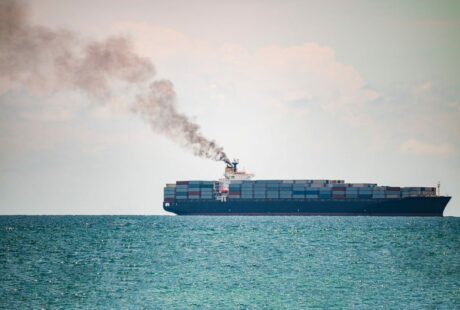There appears to be growing support for further action on maritime transport emissions at the UN’s shipping agency, the International Maritime Organization, but progress has been far too slow. This follows difficult talks at last week’s IMO ship climate working group where deliberations focused on mid-term measures to decarbonize shipping.
The meeting saw a growing number of countries in favour of more ambitious mid-term measures, including proposals for a market-based measure (MBM) and a fuel standard. This sends a positive signal for further discussions at the IMO’s 77th Marine Environmental Protection Committee meeting which takes place on 22-26 November. There, delegates will also consider proposals for the full decarbonization of shipping by 2050, a level of ambition much closer to the temperature goals of the Paris Agreement.
IMO member states will need to move much faster and significantly up their ambition if we are to avoid 3°C or more of global heating, however. This urgency was also recently highlighted by the UN Secretary General Antonio Gutteres in his speech at the Sustainable Transport Conference, where he warned against the dangerous path the shipping sector is currently on and called for radical action. The wrangling over procedural matters that were a feature of the IMO talks last week must therefore urgently give way to more constructive, swifter discussions on substance.
John Maggs, Seas at Risk, said: “A serious problem remains the failure of the discussions to properly address the urgent need for action to reduce ship climate emissions in the next few years. After previous discussions on a short-term measure failed to agree anything capable of reducing emissions before 2030, it is essential that the measures discussed last week are ambitious enough and put in place quickly enough for them to bring emissions down steeply before 2030. Recent IPCC reports make it clear that this is necessary if the 1.5 degree temperature goal of the Paris Agreement is to be met, and dangerous global heating avoided.”
Background information and what is next:
Global shipping is one of the last sectors that is not yet aligned with the Paris Agreement. The IMO’s own current target of “at least 50%” emission reduction is insufficient to achieve the target of 1.5C temperature warming. Urgent action is needed to peak and bring down the shipping emissions this decade to avoid a climate disaster.
Governments will discuss the Marshall Islands and the Solomon Islands proposal for zero emissions from shipping by 2050 at the 77th Marine Environmental Protection Committee on 22-26 November. This commitment would more closely align the sector with the 1.5C temperature goal of the Paris Agreement.
At least 44 countries have so far expressed their support for toughening up the IMO’s 2050 target to zero emissions: 4 Pacific Island states, the US, the UK, the EU27, and 11 Asian countries (Bangladesh, Bhutan, Cambodia, Laos, Maldives, Mongolia, Nepal, The Philippines, Tajikistan, Timor-Leste and Sri Lanka).
The negotiations on zero shipping emissions come in the context of the UN’s Intergovernmental Panel on Climate Change ‘code red for humanity’ report, sounding the alarm for drastically cutting greenhouse gas emissions to stabilise rising temperatures. The IMO talks will also follow the UN’s COP26 climate talks on 1-12 November in Glasgow, which will gather world leaders to accelerate action towards the goals of the Paris Agreement and the UN Framework Convention on Climate Change (UNFCCC).
Posted on: 25 October 2021



